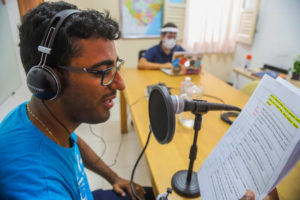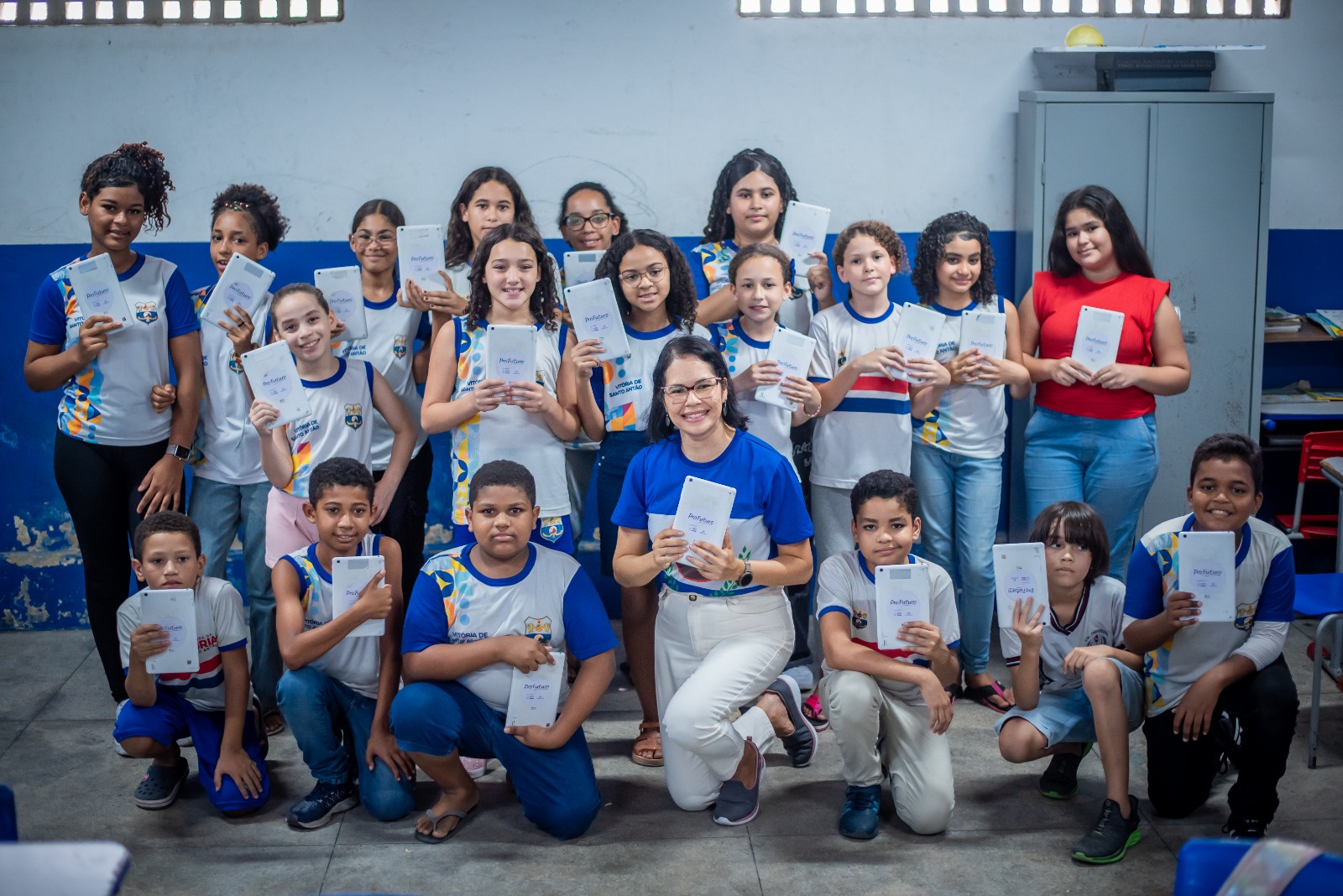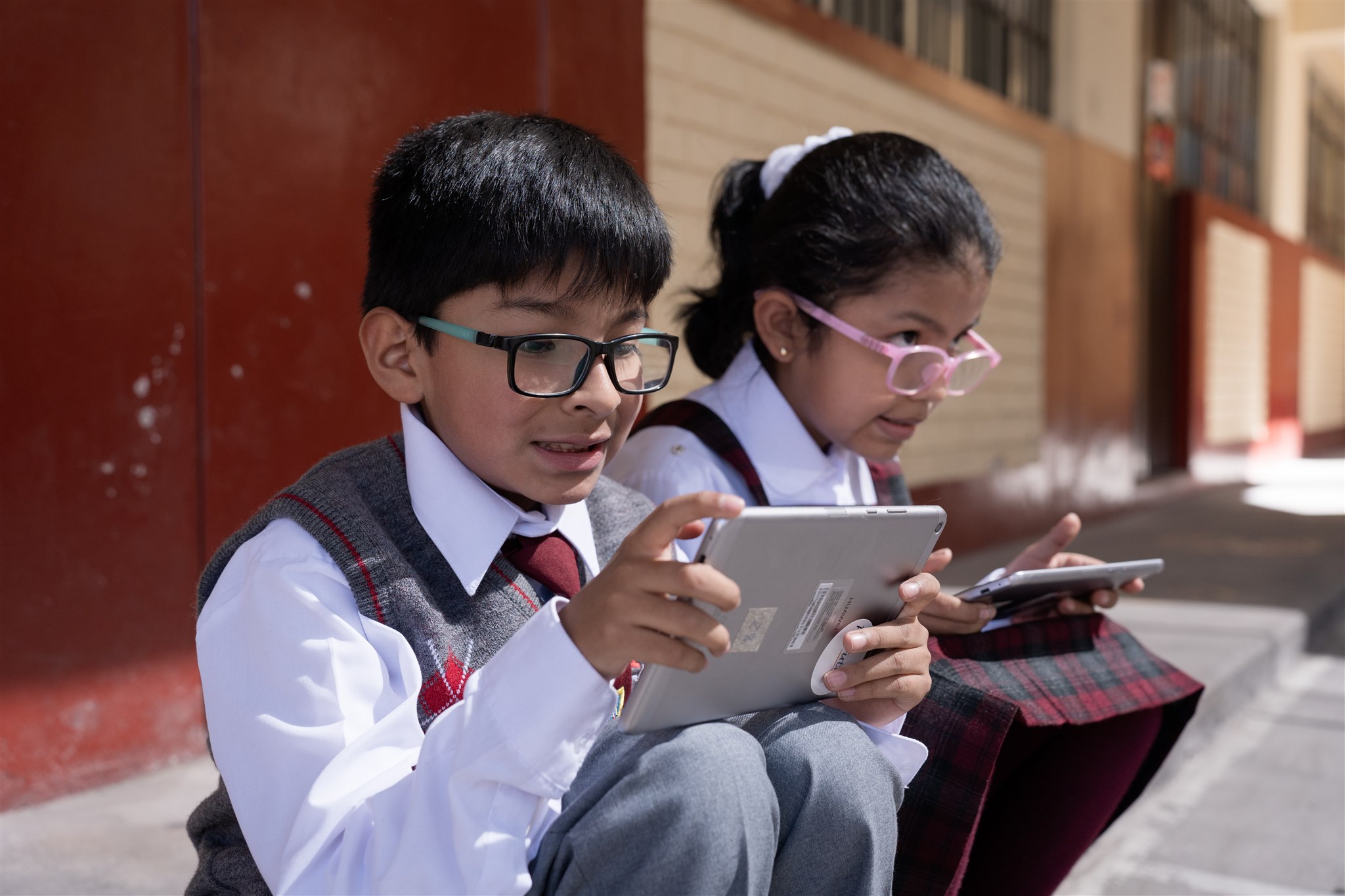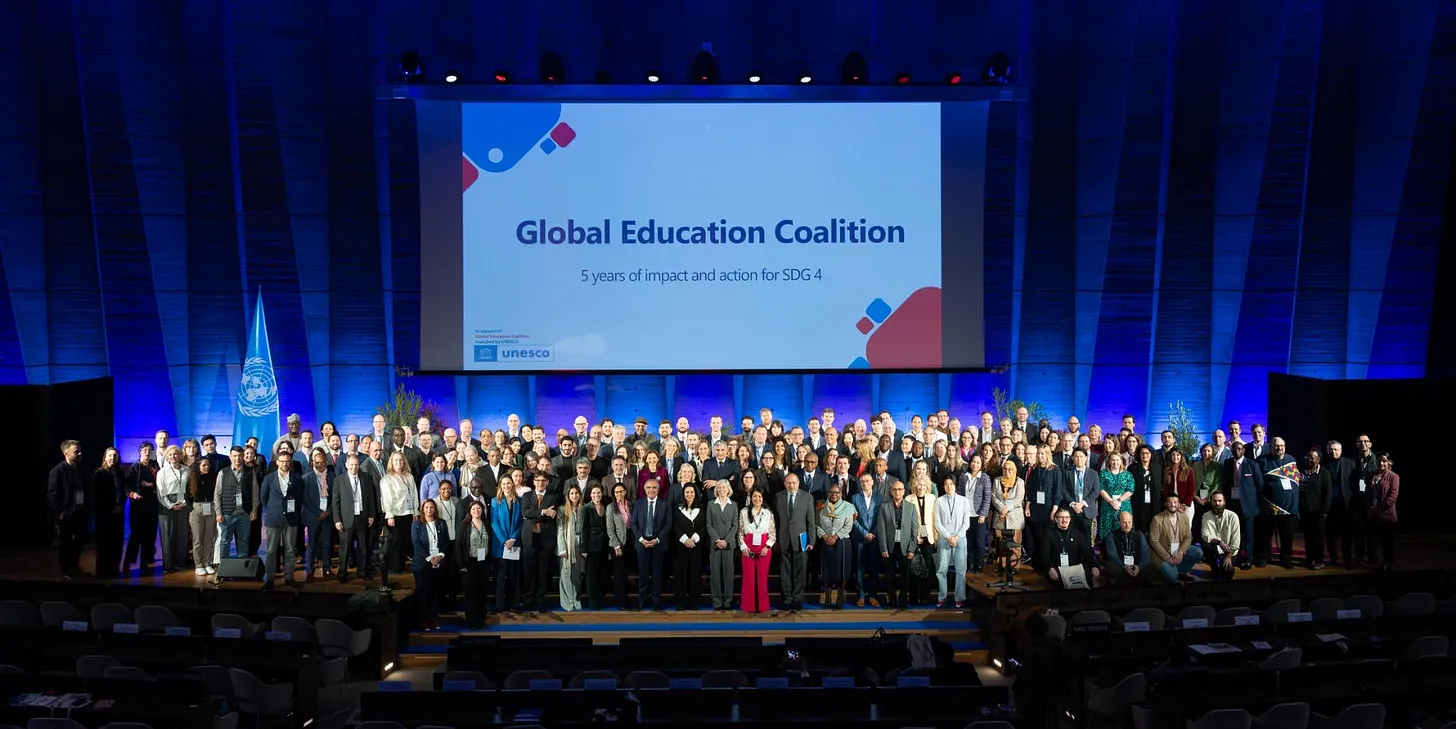More than 1,600 million students throughout the world have had their education interrupted since the pandemic came into our lives. The return to physical classrooms has been uneven around the globe and normality has only recently been reinstated or is still pending in parts of Latin America, Africa and Asia.
The most vulnerable students can’t follow remote learning classes because they don’t have electronic devices or internet access at home. Ingenuity and creativity are therefore becoming the tools to bridge the digital gap. Thus, in the 21st century, more than 100 years after its birth, the radio has once again reinvented itself, becoming the broadcaster of education to the most remote and under-resourced places on the planet.

Guaranteeing educational continuity
The natural environment in which ProFuturo had been implementing its programme was that of the school, but the Covid-19 crisis meant that it had to adapt so as to facilitate teaching and learning outside the classroom. As a result, in April 2020 we opened our digital platform on a global scale. Within weeks of the closure of their schools, teachers and students from different parts of the world were using the resources made available to them free of charge via the internet.
But one challenge remained, that of bringing education to the unconnected. UNESCO indicates that around 826 million students who’ve been kept out of school due to the pandemic don’t have access to a computer at home. About 706 million don’t have internet access and 56 million live in regions which aren’t served by mobile networks.
To overcome these barriers, we adapted our methodologies and contents to new alternative formats with the aim of guaranteeing the continuity of the education of students without access to a computer, a smartphone or the internet, chiefly in rural areas. What these students and their teachers did have within their reach was the radio. Its low cost and accessibility make it one of the most democratic means of communication in the world. So we transformed our digital educational contents into adapted pieces to be broadcast over the airwaves.
Brazil: a success story
As a result of a public-private partnership, the Department of Education of the State of Sergipe and the Paramitas Institute joined forces with ProFuturo and the Fundação Telefônica Vivo to broadcast five 22-minute weekly podcasts on different local radio stations. Using Draca, Abel and Joaquim, the didactic characters designed by ProFuturo, and adding new ones with local features, the educational series titled Estude em Casa pelas Ondas do Aula Digital incorporates elements of Sergipe’s identity and culture to facilitate the link with the youngest members of the family.
The students from the 1st to the 5th grades were able to follow the lessons from home with the help of printed learning notebooks to complement the audio files provided to them by the project. In the initial phase these radiophonic lessons reached 146,000 students in the 75 municipalities in the State of Sergipe.
Isis Mota Rodrigues Dantas, one of the teachers taking part, stresses that “the value of the radio lies in the fact that it’s a popular means of communication”. As all the students had access to it, it was a safe and guaranteed way of enabling the children to follow their lessons.
Following the positive feedback from the teachers and families, the project will move forward in 2022 with a 2.0 version. From March onwards, all the audio files and back-up materials will be posted on an open website from where they can be downloaded for offline use.

Nigeria: a series of podcasts for teachers
Another place where the radio has become the best partner for educational inclusion is Nigeria, the country with the lowest enrolment rate in the world (10.5 million of children lie outside the educational system, according to UNICEF). However, our radiophonic project in this country focuses on the teaching community, which can also benefit from the programme through career development courses to promote technological appropriation and provide methodologies for including innovation in the classroom.
To further support teachers without internet access and others with limited connectivity, a series of podcasts were recorded to cover all the training modules that ProFuturo offers on its digital platform. Produced in MP3 format, they were distributed via WhatsApp, although it was possible to download them and listen to them offline. Local groups of the programme’s former students narrated the contents in each area, as the English spoken in each region is different and it was important for it to have a local flavour to connect with the audience.
The podcasts were consumed by around 20% of the teachers who received ProFuturo training in 2020.






